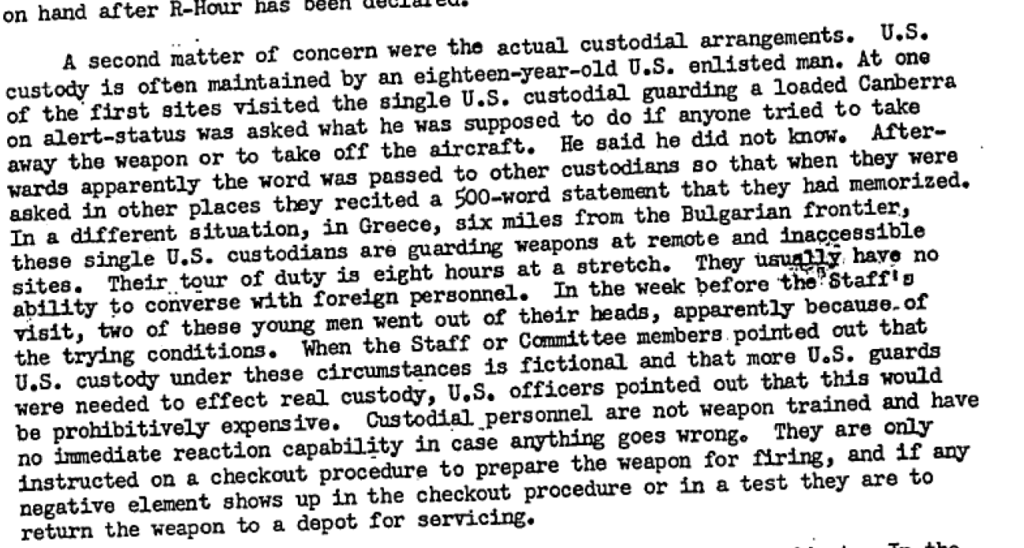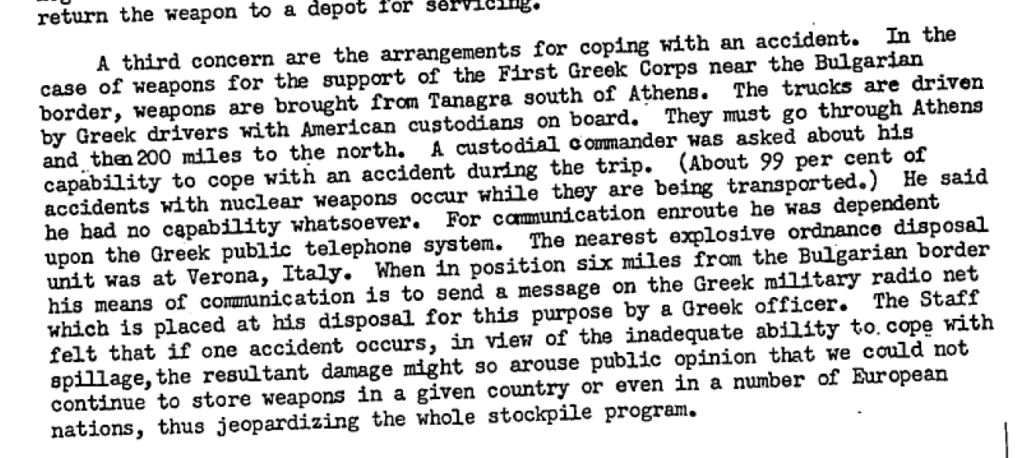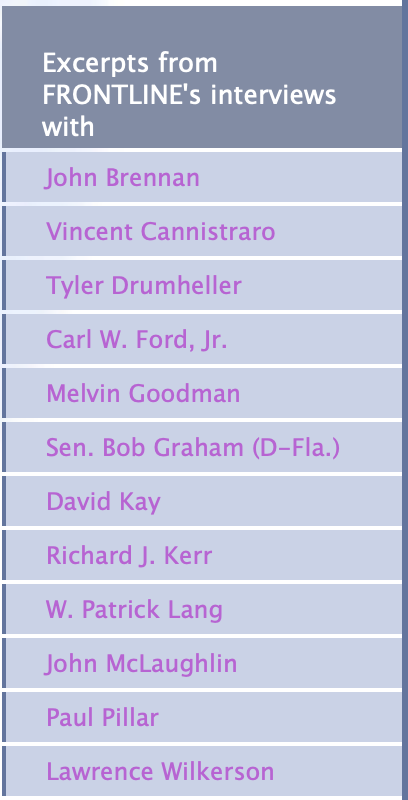This interview with Paul Pillar, published in 2006, contains a slew of good material regarding the intelligence community, especially the 2002 NIE and Iraq’s WMD.
I’ll write more about this, but I thought I’d highlight his commentary on the phenomenon of political pressure and intelligence analysis:
This is something I think has been missed by otherwise very good work by the likes of the commission led by Judge [Laurence H.] Silberman and Sen. [Charles S.] Robb, which produced a very comprehensive and useful report with excellent recommendations. But one thing that’s been missed by that inquiry, and the inquiry of the Senate Intelligence Committee, really has to do with the issue of politicization. They reached the judgment that no, there wasn’t any evidence of politicization, but basically what they were doing was asking analysts whether their arms had been twisted.
Politicization, real politicization, rarely works that way; that is to say a blatant, crude arm twisting. It’s always far more subtle. It would take the form either of these almost subconscious or subliminal adjustments that dozens of analysts might make in the course of phrasing their judgments, making it a little less nuanced, a little less caveated, which I think is the main basis for criticizing the judgments on weapons of mass destruction in Iraq.
It can take the form of … intelligence assessments that conform with what is known to be the policy having an easier time making it through … than assessments that don’t supply the policy. … This wasn’t an inquiry into how can Iraq threaten the United States; it wasn’t an inquiry into what are Al Qaeda sources of support. It instead was basically research in support of a specific line of argument. That, I think, qualifies for the label “politicization,” even if analysts are doing their best job to maintain their analytic integrity when they make their individual judgments. …






